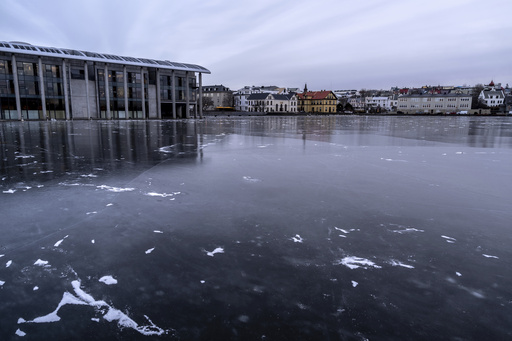REYKJAVIK, Iceland — Voters in Iceland are set to elect a new parliament this Saturday, following tensions regarding immigration, energy strategies, and economic concerns that led Prime Minister Bjarni Benediktsson to dissolve his coalition government. This move comes after the Prime Minister struggled to maintain unity among the diverse interests of his conservative Independence Party, the centrist Progressive Party, and the Left-Green Movement, ultimately prompting early elections.
This marks Iceland’s sixth general election since the 2008 financial meltdown that severely impacted the nation’s economy and created a prolonged period of political volatility. Recent polling indicates that the ruling parties’ popularity has significantly declined. Benediktsson, who took office in April after his predecessor resigned, faces the challenge of rallying support amidst shifting voter sentiments.
Iceland is home to around 400,000 residents and prides itself on being one of the world’s oldest parliamentary democracies, with its parliament, the Althingi, established in 930 AD by Norse settlers.
In this election, voters will select 63 members of the Althingi. The allocation of seats is determined through a combination of regional constituencies and proportional representation, requiring parties to secure at least 5% of the vote to gain parliamentary seats. The previous parliament featured eight parties, while ten are competing this time. Voter turnout has historically been high, with 80% of registered voters participating in the last parliamentary election in 2021.
The timing of the election is unusual, as Iceland typically holds elections in warmer months. However, on October 13, Benediktsson’s decision to request President Halla Tómasdóttir to disband the Althingi underscored his belief that the coalition could no longer function effectively. According to Vilhjálmur Bjarnson, a former MP, the political landscape lacks a strong party or a charismatic leader with a clear vision, complicating the country’s political cohesion.
The fragmentation of Iceland’s political scene emerged following the 2008 financial crisis, which caused significant economic turmoil after the collapse of its heavily indebted banks. This crisis resulted in widespread discontent with the traditional political parties, paving the way for the rise of new political movements, including the environmentally-focused Left-Green Alliance and the Pirate Party, which champions direct democracy and personal freedoms. Eva H. Önnudóttir, a political science professor at the University of Iceland, noted that the political landscape has irrevocably changed since the crash, and there is little hope for a return to previous norms.
Key issues in the election include rising living costs and immigration challenges, which are plaguing many Western nations. Iceland experienced inflation peaking at an annual rate of 10.2% in February 2023, driven by the repercussions of the COVID-19 pandemic and global disruptions from Russia’s actions in Ukraine. Although inflation eased to 5.1% in October, it still outpaces that of neighboring countries, with both the U.S. and European Union recording much lower rates.
The surge in immigration has also become a contentious topic, with the number of asylum-seekers in Iceland exceeding 4,000 annually for the past three years, contrasted with an historic average of fewer than 1,000. This influx has created strain in Iceland’s traditionally homogenous society.
Additionally, volcanic eruptions in the southwestern region have led to thousands being displaced and have placed additional pressure on public resources. Following the evacuation of Grindavik due to volcanic activity, residents are still grappling with housing instability, which has triggered criticism of the government’s responsiveness. The situation has further complicated the ongoing housing crisis fueled by an upswing in tourism, leaving many young people struggling to secure affordable housing amidst a growing demand for short-term rentals. Önnudóttir emphasized that the housing dilemma has become increasingly critical in Iceland as these challenges intersect.




